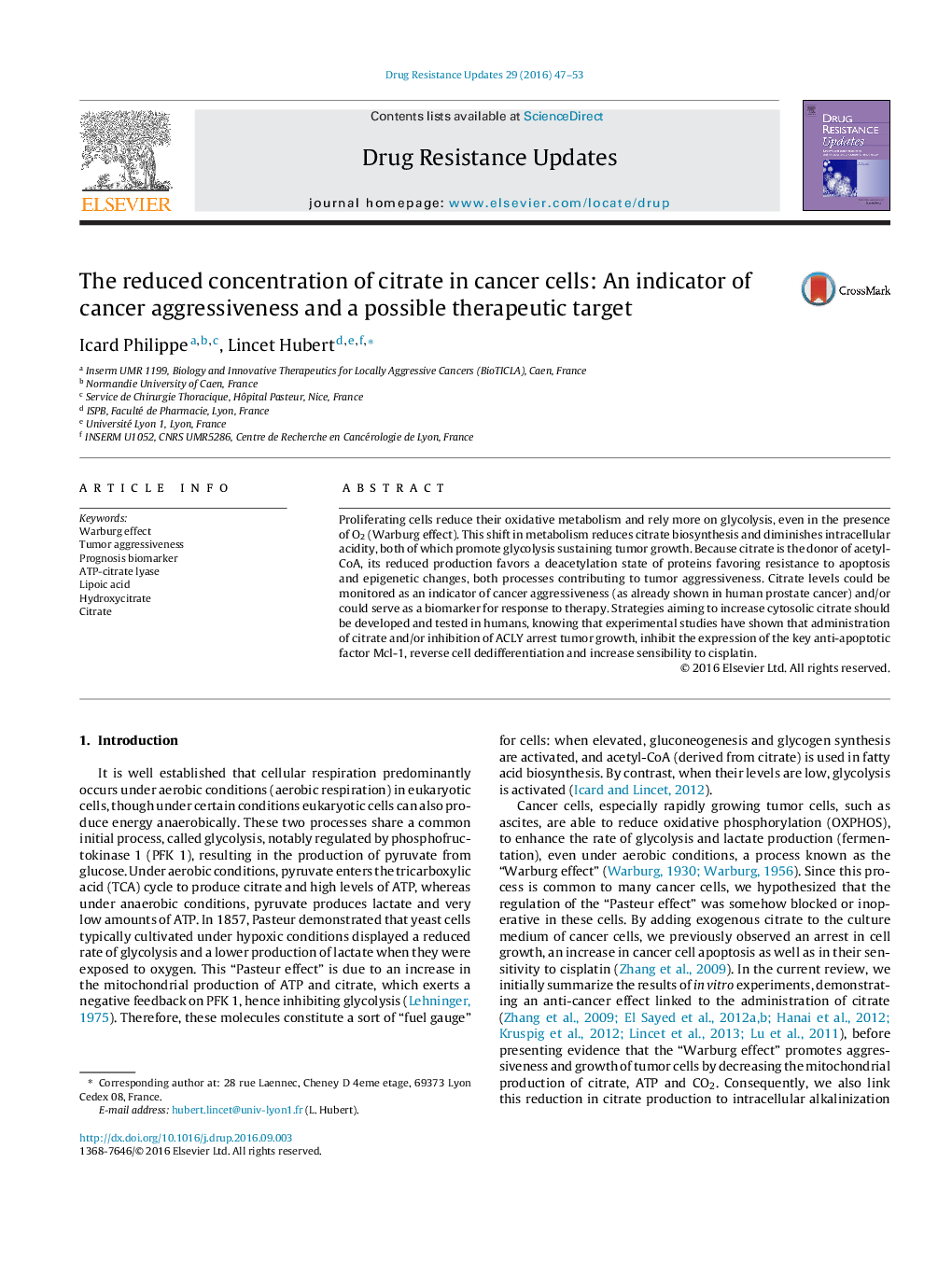| کد مقاله | کد نشریه | سال انتشار | مقاله انگلیسی | نسخه تمام متن |
|---|---|---|---|---|
| 8436647 | 1546834 | 2016 | 7 صفحه PDF | دانلود رایگان |
عنوان انگلیسی مقاله ISI
The reduced concentration of citrate in cancer cells: An indicator of cancer aggressiveness and a possible therapeutic target
ترجمه فارسی عنوان
کاهش غلظت سیترات در سلولهای سرطانی: شاخصی از پرخاشگری سرطان و یک هدف ممکن درمانی است
دانلود مقاله + سفارش ترجمه
دانلود مقاله ISI انگلیسی
رایگان برای ایرانیان
کلمات کلیدی
موضوعات مرتبط
علوم زیستی و بیوفناوری
بیوشیمی، ژنتیک و زیست شناسی مولکولی
تحقیقات سرطان
چکیده انگلیسی
Proliferating cells reduce their oxidative metabolism and rely more on glycolysis, even in the presence of O2 (Warburg effect). This shift in metabolism reduces citrate biosynthesis and diminishes intracellular acidity, both of which promote glycolysis sustaining tumor growth. Because citrate is the donor of acetyl-CoA, its reduced production favors a deacetylation state of proteins favoring resistance to apoptosis and epigenetic changes, both processes contributing to tumor aggressiveness. Citrate levels could be monitored as an indicator of cancer aggressiveness (as already shown in human prostate cancer) and/or could serve as a biomarker for response to therapy. Strategies aiming to increase cytosolic citrate should be developed and tested in humans, knowing that experimental studies have shown that administration of citrate and/or inhibition of ACLY arrest tumor growth, inhibit the expression of the key anti-apoptotic factor Mcl-1, reverse cell dedifferentiation and increase sensibility to cisplatin.
ناشر
Database: Elsevier - ScienceDirect (ساینس دایرکت)
Journal: Drug Resistance Updates - Volume 29, November 2016, Pages 47-53
Journal: Drug Resistance Updates - Volume 29, November 2016, Pages 47-53
نویسندگان
Icard Philippe, Lincet Hubert,
